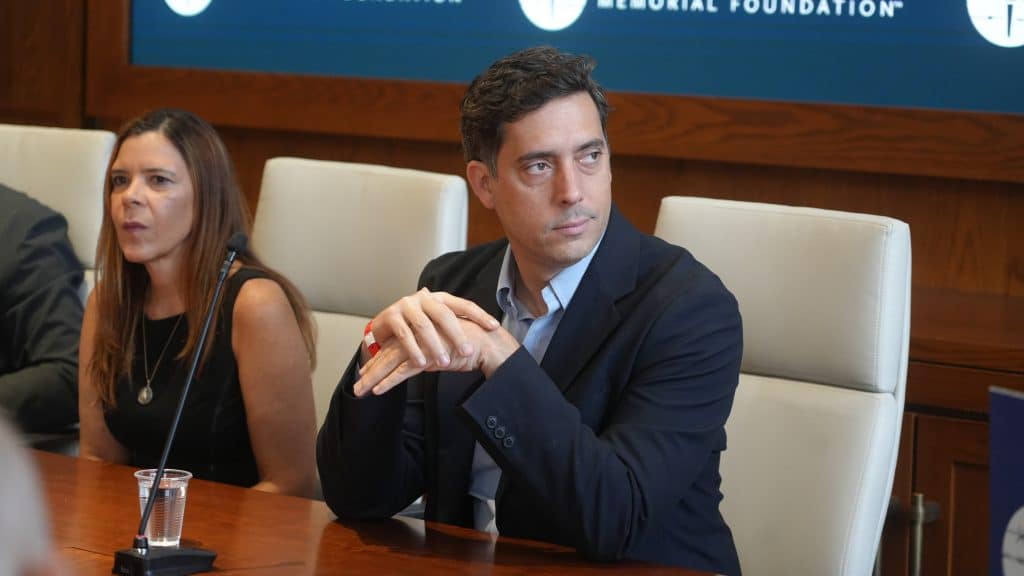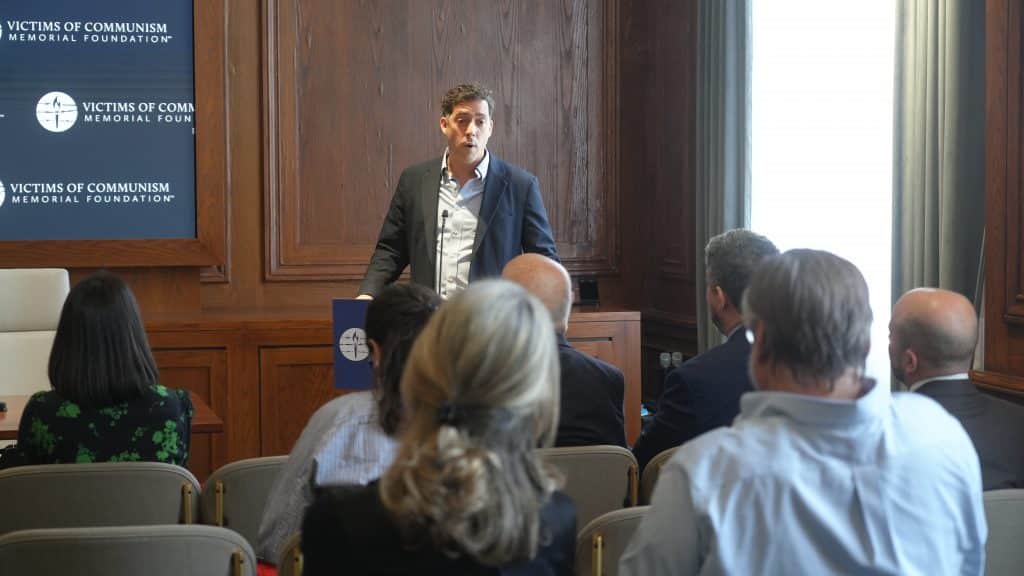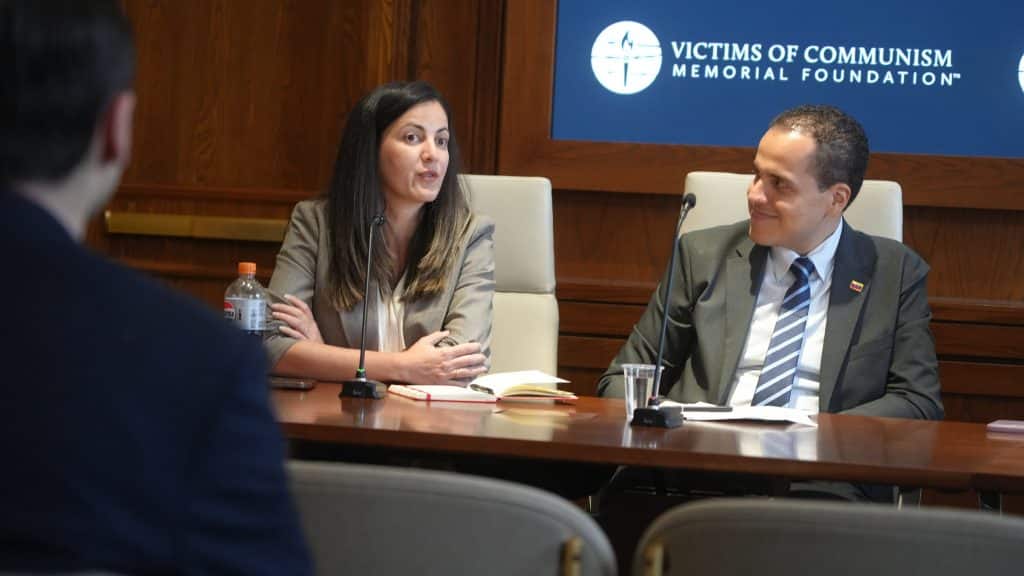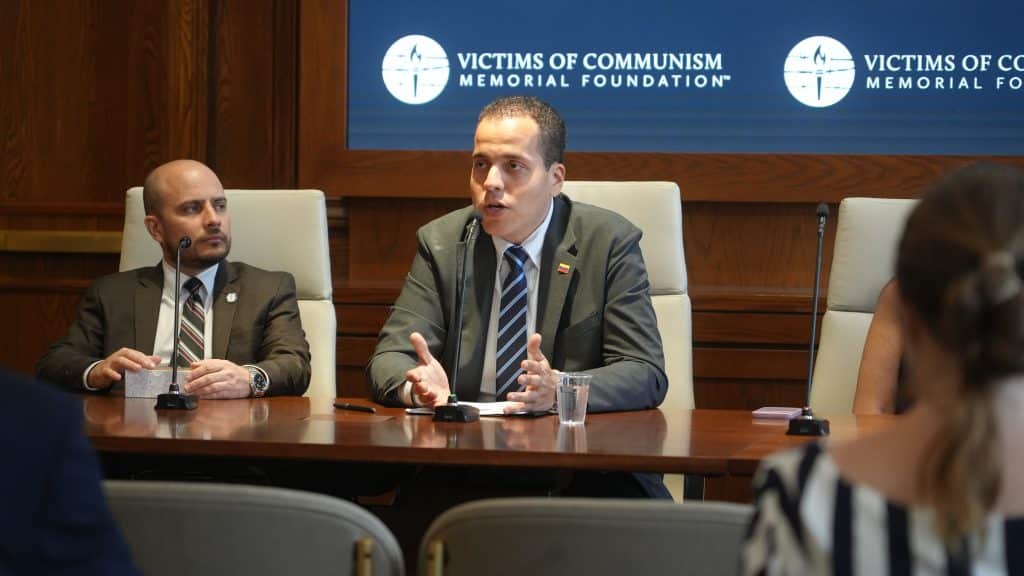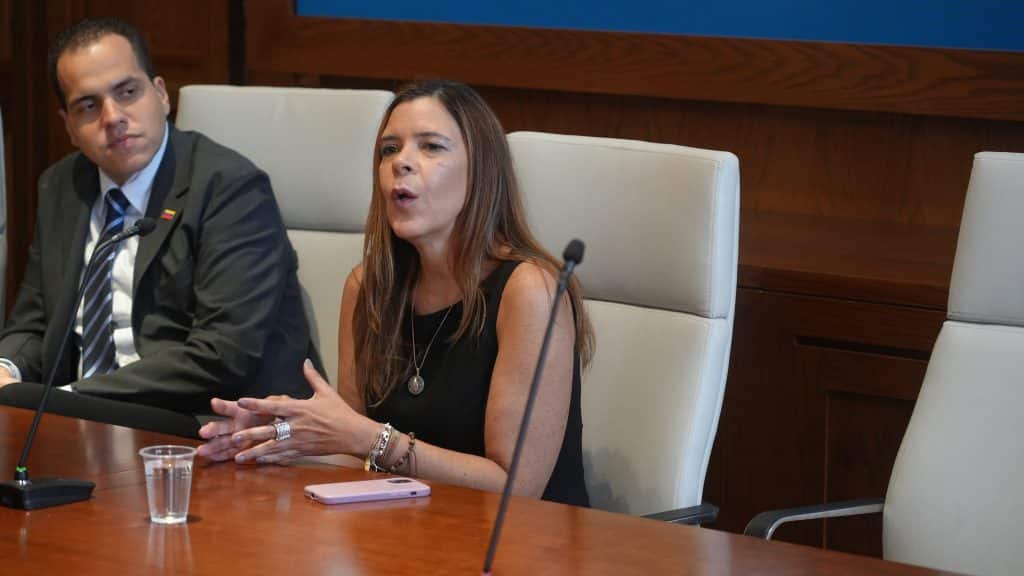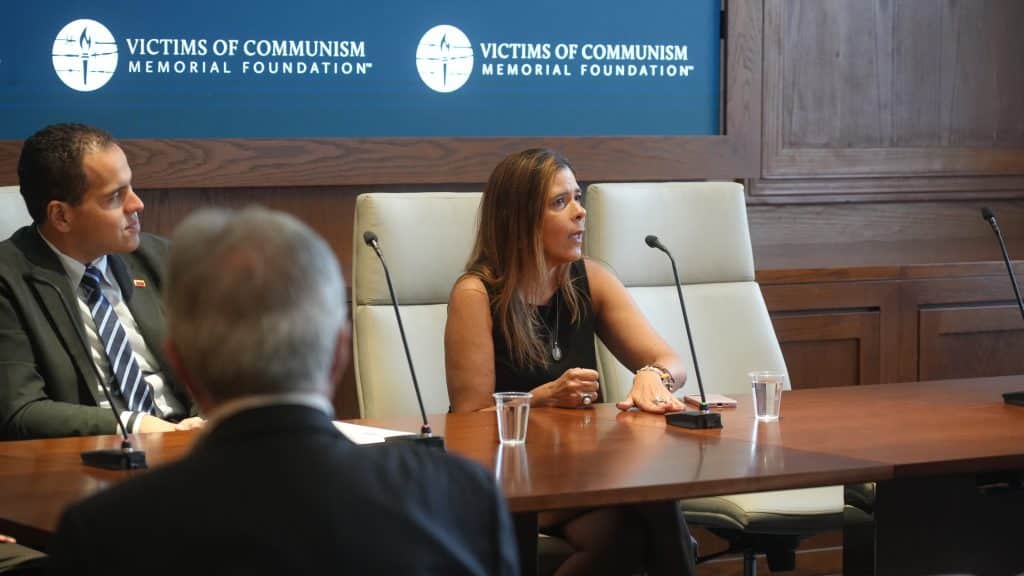Underworld Threats in the Caribbean
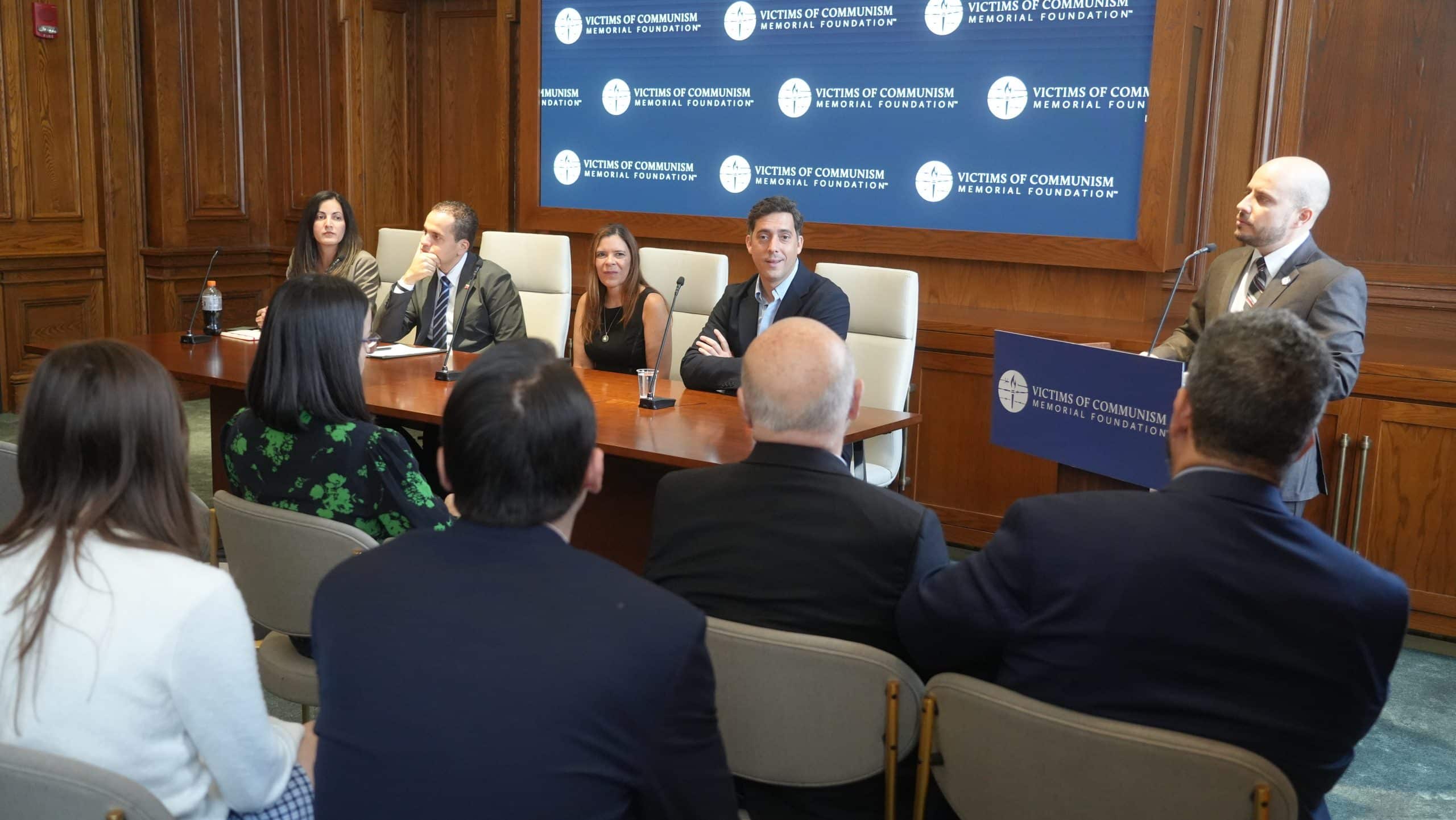
On Thursday, September 18, VOC’s Underworld Threats in the Caribbean panel, moderated by Rodrigo Diamanti, founder and president of Un Mundo Sin Mordaza, brought together Rosa María Payá, Pedro Urruchurtu, and Ronna Rísquez to discuss the regional impact of authoritarian regimes and organized crime.
Rosa María Payá, daughter of assassinated Cuban political leader Oswaldo Payá and currently an elected commissioner to the Inter-American Commission on Human Rights, emphasized that the Cuban regime’s survival has depended on international tolerance and its influence on leaders such as Hugo Chávez, Daniel Ortega, and Colombian guerrillas; she argued that a collapse of the Venezuelan regime would trigger a positive domino effect across the region, describing Cuba as “the head of the octopus” and Venezuela as its oxygen source.
Pedro Urruchurtu, a member of María Corina Machado’s Comando Venezuela team who endured 10 months of asylum in the Argentinian Embassy before being extracted through Operation Guacamaya, echoed this view, stressing that Venezuelans overwhelmingly support democratic change and rejecting the notion of civil war, while underscoring that the Maduro regime has consolidated into a criminal structure involved in money laundering, drug trafficking, and terrorism.
Ronna Rísquez, a Venezuelan journalist and author of the first book on the Tren de Aragua gang, provided further evidence of this criminalization, explaining how the whole state apparatus—military, judiciary, legislature, and executive—took over cartel operations during the Chávez era after Plan Colombia pushed drug lords into Venezuela, creating a pervasive criminal state, where the Chavista regime found a criminal business opportunity.
